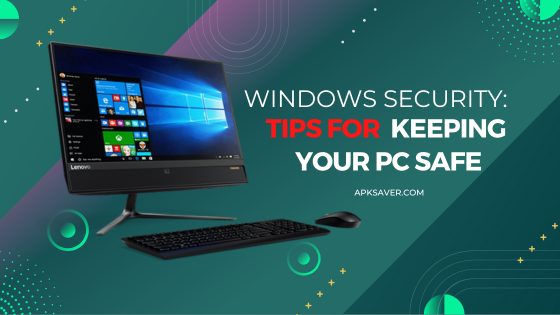“Are you tired of constantly worrying about the safety of your PC? Do you want to take control and secure your windows system for good? Look no further, because we’ve got you covered. In this blog post, we’ll be sharing valuable tips and tricks that will help keep your Windows device safe from cyber threats. From updating software to using strong passwords, our expert advice is sure to give you peace of mind when it comes to protecting your precious data.”
The Different Types of Windows Security
There are many different types of Windows security software available, and it can be difficult to know which one is right for you. Here are some tips to help you choose the right security software for your PC:
1. Decide what type of protection you need.
Do you want to protect your PC from viruses, spyware, and other malware? Or do you want to add an extra layer of security by encrypting your data? There are security programs that offer both types of protection, so decide what you need before shopping around.
2. Consider your budget.
Security software can range in price from free to hundreds of dollars. If you’re on a tight budget, there are plenty of good free options available. But if you’re willing to spend a little more, you’ll get better protection and more features.
3. Check for reviews.
Before downloading any security program, check out reviews from trusted sources like CNET or PC Magazine. This will help you weed out the duds and find the best programs available.
4. Don’t forget about updates.
Once you’ve installed a security program, make sure to keep it up-to-date with the latest virus definitions and security patches. Many programs offer automatic updates, which make it easy to stay protected against the latest threats.
5. Look for extra features.
Many security programs offer additional features, like parental controls, file shredding, and web protection. If you’re looking for something more than just virus protection, consider these extras when choosing a program.
The Importance of Keeping Your PC Secure
As our lives move increasingly online, it’s more important than ever to keep our personal computers secure. With so much of our personal information stored on our PCs, from financial records to family photos, it’s vital that we take steps to protect ourselves from potential hackers and malware. Here are a few tips for keeping your PC safe and secure:
1. Use a strong password and don’t reuse passwords across different accounts. A strong password should be at least 8 characters long and include a mix of letters, numbers, and special characters. Avoid using easily guessed words like your name or birthdate.
2. Keep your operating system and software up to date. Hackers are constantly finding new ways to exploit security vulnerabilities, so it’s important to keep your PC updated with the latest security patches.
3. Install reliable security software and keep it up to date. A good security suite can protect you from viruses, spyware, phishing attacks, and more. Be sure to keep your security software up to date so it can best protect you against the latest threats.
4. Use caution when opening email attachments or clicking links in emails. Emails are one of the most common ways that hackers try to gain access to computers. Never open an attachment or click a link in an email unless you’re absolutely sure it’s safe.
5. Be careful what you download from the internet. Only download files from websites that you trust and be sure to scan any downloaded files with your security software before opening them.
By following these tips, you can help ensure that your PC is as secure as possible. Keeping your PC secure isn’t just important for protecting yourself, it’s also important for protecting those close to you by avoiding the spread of malware and other malicious content.
Tips for Keeping Your PC Safe
1. Keep your operating system and software up to date: Out-of-date software is one of the biggest security risks. Make sure you have the latest versions of your operating system and all the software you use installed on your computer.
2. Use antivirus and anti-malware protection: Antivirus and anti-malware software can help protect your computer from viruses, malware, and other online threats. Be sure to keep your antivirus and anti-malware software up to date.
3. Don’t click on links or attachments in emails or instant messages from people you don’t know: Emails and instant messages are common ways for cybercriminals to spread malicious software or links to websites that can infect your computer with viruses or spyware. If you receive an email or instant message from someone you don’t know, don’t click on any links or attachments it contains.
4. Be cautious about what you download: Only download files, programs, and apps from websites or other sources that you trust. Be especially careful about downloading free programs, as these are often used by cybercriminals to spread malware.
5. Don’t reveal personal or financial information online: Be careful about what information you share online, especially personal or financial information. Cybercriminals can use this information to commit identity theft or fraud.
6. Use strong passwords and keep them safe: Use strong passwords (a mix of upper- and lowercase letters, numbers, and special characters) for all your online accounts, and change them every few months. Also, make sure to store your passwords in a safe place where no one else can access them.
Conclusion
With cyber threats becoming more and more prevalent, staying safe online is of utmost importance. Thankfully, there are a few simple steps that you can take to enhance the security of your Windows PC and keep it running smoothly and safely. By following the above tips – such as regularly updating your system, disabling unnecessary services, installing an antivirus program and configuring firewall settings – you can ensure that your computer remains secure no matter where you go or what you do on it.



